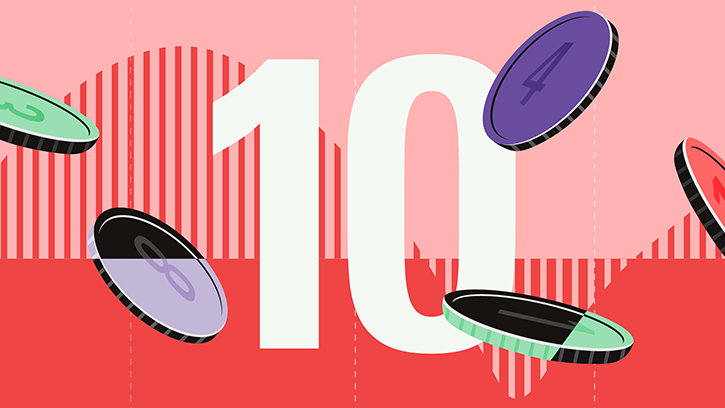
UK property funds are set to benefit from the re-opening of offices, retail and restaurants. And the majority of these funds now allow investors to buy and sell units, having gated last year as the pandemic struck. But the outlook for the sector is still highly uncertain after recent proposals by the regulator to replace funds that hold illiquid assets.
We last looked at the sector’s prospects at the start of the year and we’re now revisiting again as the restrictions on the UK economy start to lift.
UK Property Funds - 2021 and 2020 Returns
What’s the Latest?
It’s one step forward, one step back for the property sector. M&G Property Portfolio, the second largest open-ended fund in the sector, re-opened in May 2021, having gated as long ago as December 2019 as it was hit by "unusually high and sustained outflows". At the time investors were worried about Brexit and a Corbyn government.
But one of the smallest funds in the open-ended property sector, Aviva Investors UK Property, is to be wound down in July 2021. The group said it feared heavy redemptions when it-reopened – and said it was too small to benefit from the economies of scale enjoyed by larger funds in the sector. The company said: “Size is particularly important for funds that invest in property directly because the costs involved in acquiring, managing and disposing of properties are usually much higher than the costs associated with other asset types.” Investors are expected to get 40% of their money back this year but could face a wait of up to 24 months to get the remainder.
Have all the Property Funds Re-opened?
The majority of property funds have now re-opened. Investors had been waiting for Aegon Property Income to re-open but it announced in June that it would be closed permanently. The fund's cash levels were 25% at the end of April and the manager had intended to re-open the fund “once we are satisfied that the fund has sufficient cash to meet redemption requests”.
However, in a June 23 update, it said it had "proved increasingly challenging to raise sufficient liquidity whilst also ensuring that continuing investors have a representative and well-balanced portfolio. Accordingly, in order to ensure all investors are treated fairly, Aegon AM has decided to take steps to close the fund and return the proceeds to investors as quickly as possible, in a fair and orderly manner".
What Else Should Investors Be Worried About?
Open-ended property funds have long been a concern for the Financial Conduct Authority, which has just launched a consultation on a long-term asset funds (LTAF) as an alternative way of holding illiquid assets like property.
The “liquidity mismatch” remains the key issue: investors can buy and and sell units on daily basis but the underlying assets are harder to shift than shares in companies. The regulator is due to reports its findings later in 2021. Until then, a cloud will hang over the sector, says Ryan Hughes, head of active portfolios at AJ Bell: "There is hope that some clarity will come later in the year and investors will need this to have any kind of confidence in the funds they hold and the structures they operate in.”
Have There Been Outflows?
Yes, inevitably, although as market conditions have become less volatile, this hasn’t been the “stampede for the exits” that may have occurred in March last year. These outflows have been more of a trickle than a flood in recent few months, according to Morningstar fund analyst Bhavik Parekh: “Direct property funds have seen some outflows since many of them reopened in recent months, but in April, these withdrawals were limited. The highest net outflow for a single strategy was from M&G Property Portfolio, but this represented only 1.5% of the fund's assets under management.”
While the broad asset category, Property, has seen £2 billion of outflows this year, but that includes global property funds too. Funds in “UK Direct Property” have not featured in the categories seeing the biggest redemptions in the last year.
What has Performance Been Like this Year?
New lockdowns at the start of the year didn’t help property fund performance. But some have put in a respectable showing. L&G Property has returned 4% (for context, the FTSE AllShare is up 8% in the same period) and most funds are in positive territory so far this year, a reversal from 2020, when most were under water. This year’s worst performer, with a loss of more than 3%, is the fund that is closing, Aviva.
Is the Worst Over for UK Property?
Commercial property investors hope the re-opening trend is a permanent one after 2020’s false dawn, and that new Covid-19 variants don’t trigger another national lockdown. Global investors are now worried about inflation as economies re-open, and this trend is a favourable one for commercial property.
“Historically real estate has done well during inflationary periods. As the economy expands and the demand for goods and services increases, rents tend to grow, making property investments a good hedge against inflation,” says Calum Bruce, manager of the Ediston Property Investment Company (EPIC). Many commercial property leases have an inflation link, which means that landlords will receive a higher income if the cost of living rises.
Note: this article was updated June 23, 2021 after the announcement of the closure of the Aegon Property Income fund




























